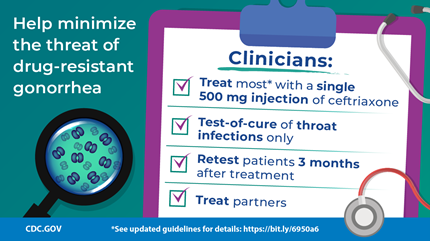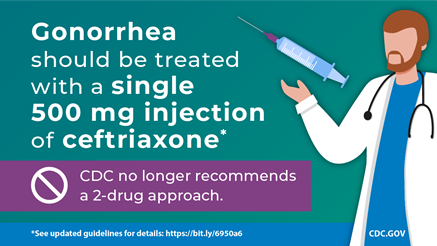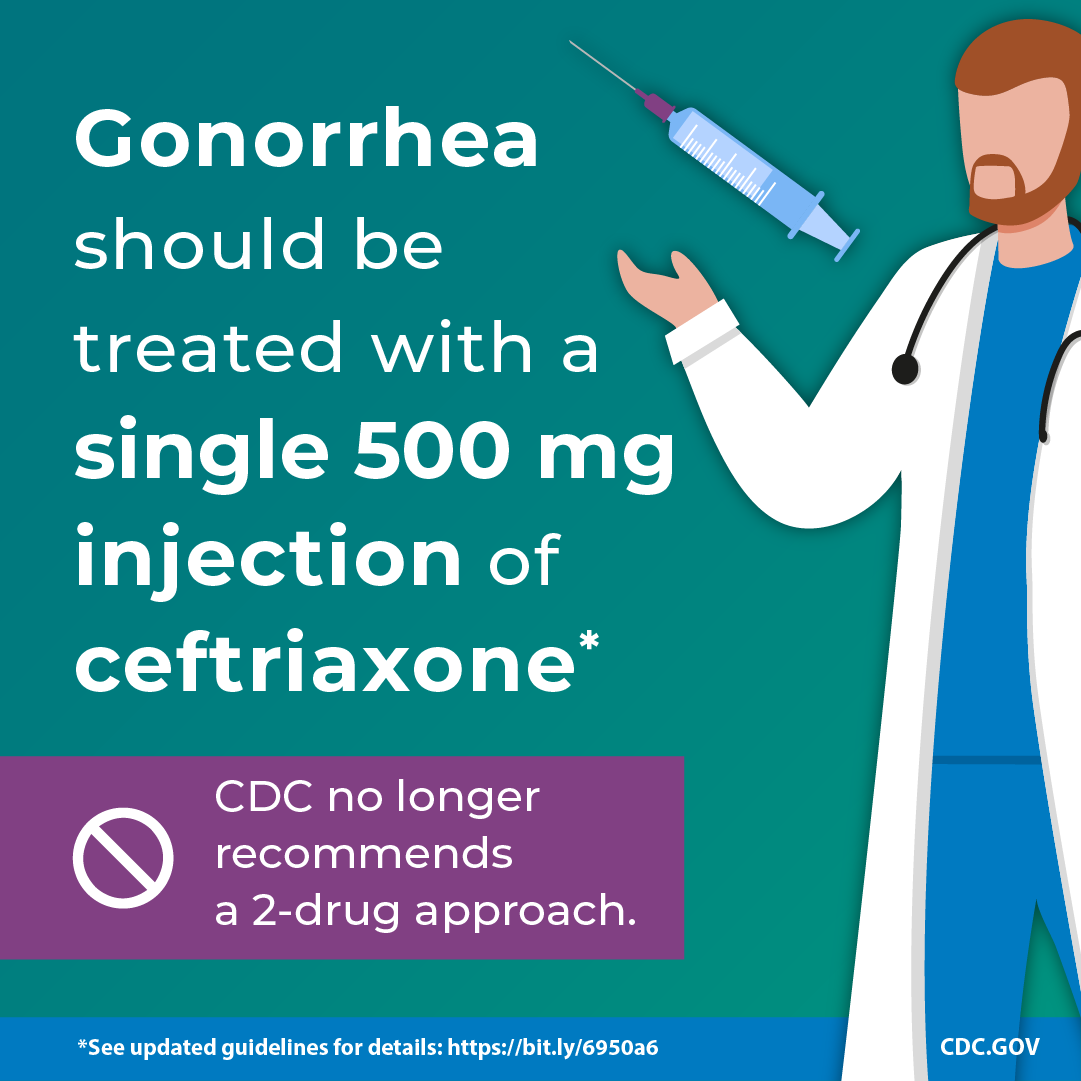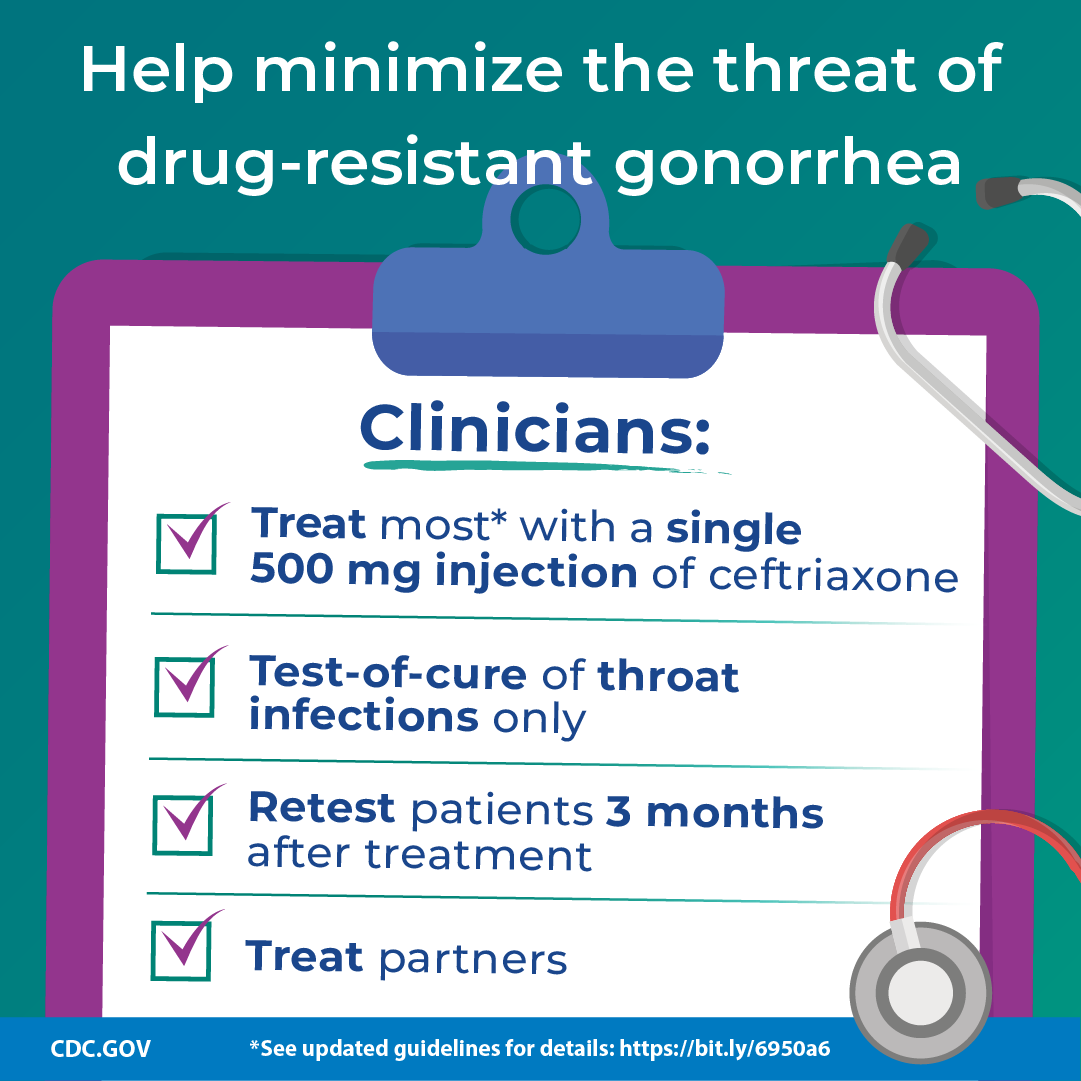2020 Update to CDC’s Treatment for Gonococcal Infections
CDC has updated its recommendation for the treatment of uncomplicated gonorrhea in adults.

Summary
CDC has updated its recommendation for the treatment of uncomplicated gonorrhea in adults. Gonorrhea should now be treated with just one higher dose (500 mg) injection of ceftriaxone, and dual therapy is no longer the recommended approach.
The new recommendation – summarized below – is available in 2020 Update to CDC’s Treatment for Gonococcal Infections, a special policy note to publish Thursday, 12/17 at 1p EST in MMWR.
- Treat gonorrhea with a single 500 mg injection of ceftriaxone.
- A test-of-cure is not needed for people who receive a diagnosis of uncomplicated urogenital or rectal gonorrhea unless symptoms persist;
- A test-of-cure is recommended in people with pharyngeal gonorrhea 7–14 days after initial treatment, regardless of regimen.
- Patients who have been treated for gonorrhea should be retested three months after treatment to ensure there is no reinfection.
- As always, facilitate partner testing and treatment.
CDC previously recommended a two-drug regimen of the injectable ceftriaxone and oral azithromycin for uncomplicated gonorrhea. However, CDC recently reevaluated this recommendation due to increasing concern for antimicrobial stewardship, the continued low rates of ceftriaxone resistance, and changes in azithromycin susceptibility in gonorrhea isolates in the United States. Gonorrhea is still treatable in the United States, but drug-resistant gonorrhea remains an urgent public health threat. Half of all gonorrhea infections demonstrate resistance or developing resistance to at least one antibiotic, and ceftriaxone is in the last recommended effective class of antibiotics used to treat this common infection.
Downloadable images are available to share with your networks on social media.



